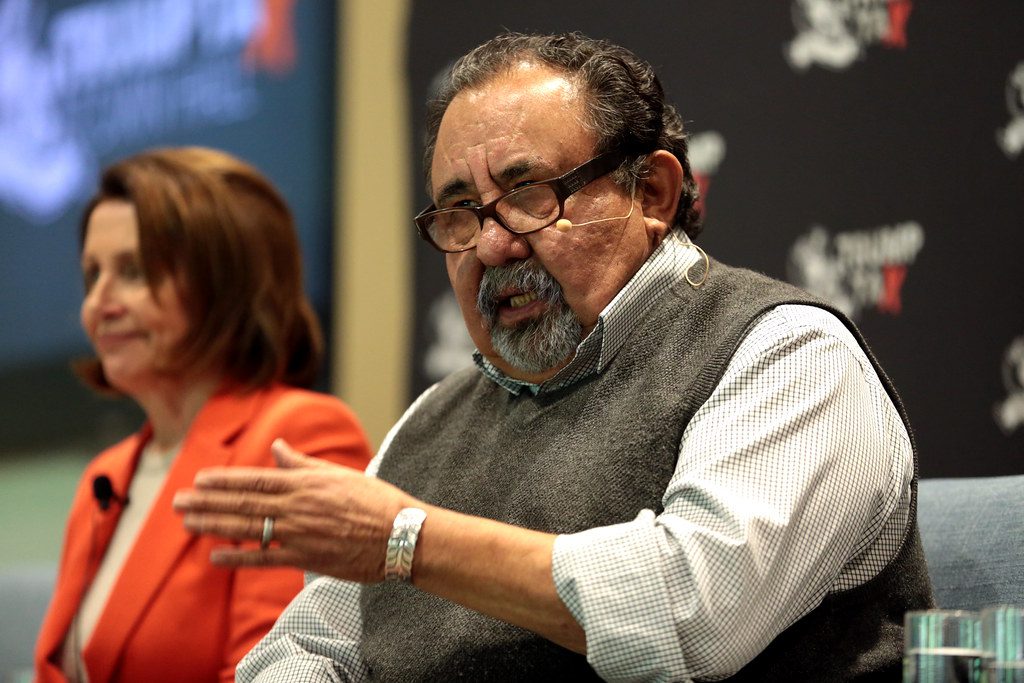Proposed US mining legislation follows strict party lines — editorial

The increased polarity and hardening of political stances in the U.S. — combined with the flip last election to Democratic Party control of the U.S. House of Representatives, and its committees — is bearing fruit that’s potentially poisonous to miners in the form of highly restrictive legislation proposed by Rep. Raúl Grijalva’s (D-Ariz.), who chairs the House Natural Resources Committee, and co-sponsored by Alan Lowenthal (D-Calif.), who chairs the House Subcommittee on Energy and Mineral Resources.
At its core, Grijalva’s (D-Ariz.) Hardrock Leasing and Reclamation Act of 2019 seeks to replace the General Mining Law of 1872, which is still in effect and governs mining on public lands in the U.S., and has long been the target of eco-activists.
For miners, probably the worst part of the bill is its proposed imposition of a 12.5% royalty on all new mining operations, and 8% on existing ones. This, say the bill’s proponents, would result in hard-rock miners paying the same royalties as the oil and gas and coal-mining industries.
“Without question, the Grijalva bill, if enacted, would substantially chill private-sector investment in exploring for and developing minerals on federal land”
The American Exploration & Mining Association
In the deceptive language of the bill’s proponents and supporters, hard-rock miners have been mining “for free” on public lands in the U.S. by not paying federal royalties, conveniently ignoring the myriad of claims fees and corporate and personal income taxes paid by miners and explorers that swell government coffers.
The American Exploration & Mining Association had a harsh reaction to the bill: “The sweeping changes in Rep. Grijalva’s legislation are unnecessary and a disaster in the making for the domestic mining industry, and for America. The fact is, hardrock mining is fundamentally different than oil, gas and coal, because it is much more difficult to find and develop hardrock mineral resources.
“This bill ignores these differences and seeks to force-fit royalty and leasing programs for coal, oil and gas on hardrock mining. Without question, the Grijalva bill, if enacted, would substantially chill private-sector investment in exploring for and developing minerals on federal land, and dramatically increase our already extensive reliance on foreign sources of minerals.”
Grijalva says the bill also aims to: “end the outdated claim-staking and patenting system that gives miners unfettered access to nearly all public land” in the U.S.; require “meaningful tribal consultation”; eliminate the “exalted status that mining currently enjoys” on public lands; and make more land off limits to hardrock mining.
Barrick Gold president and CEO Mark Bristow told the Elko Daily that, with respect to Barrick joint venturing most of its Nevada assets with Newmont Goldcorp, the proposed bill “will screw up this deal. That will take away everything we want to unlock.
“Our job as businessmen should be making profits. Legislators should understand that. That was how this country was built — hardworking people delivering and paying their taxes.”
The co-sponsors on the bill are all Democrats, and include: Rep. Don Beyer (D-Va.), Rep. Earl Blumenauer (D-Ore.), Rep. Matt Cartwright (D-Pa.), Rep. Peter DeFazio (D-Ore.), Rep. Diana DeGette (D-Colo.), Rep. John Garamendi (D-Calif.), Rep. Deb Haaland (D-N.M.), Rep. Jared Huffman (D-Calif.), Rep. Mike Levin (D-Calif.), Rep. Jim McGovern (D-Mass.), Rep. Grace Napolitano (D-Calif.), Rep. Eleanor Holmes Norton (D-D.C.), Rep. Mark Pocan (D-Wis.) and Rep. Darren Soto (D-Fla.).
Meanwhile in the U.S. Senate, Senator Tom Udall (D-N.M.) introduced his own bill seeking to replace the 1872 Mining Law in a similar fashion, though with Republicans holding the majority in the Senate, the bill is likely to be voted down there.
Original cosponsors of Udall’s bill were again all Democrats, and included: Senators Martin Heinrich (D-N.M.), Michael Bennet (D-Colo.), Ed Markey (D-Mass.), Ron Wyden (D-Ore.), Cory Booker (D-N.J.), Kamala Harris (D-Calif.) and Jeff Merkley (D-Ore.).
Udall tried to enact a 2–5% royalty on hardrock miners in 2015, but was blocked by Harry Reid, the Democrat U.S. Senator for Nevada, who retired in 2016.
“Permitting delays stand in the way of high-paying jobs and revenue for local, often rural, communities”
U.S. Representative Mark Amodei
In another example of Democrats and Republicans talking past each other, U.S. Representative Mark Amodei (R-Nev.), whose district takes in northwestern Nevada’s goldfields, opposes new royalties, and reintroduced his National Strategic and Critical Minerals Production Act in early May, aiming to streamline permitting processes.
Comments Amodei: “Permitting delays stand in the way of high-paying jobs and revenue for local, often rural, communities. In fact, since the 1990s, mineral exploration has stagnated and even declined in some cases because regulatory changes have caused the permit approvals process to take as long as 10 years.”
(By John Cumming)
This story first appeared in The Northern Miner
{{ commodity.name }}
{{ post.title }}
{{ post.date }}




Comments